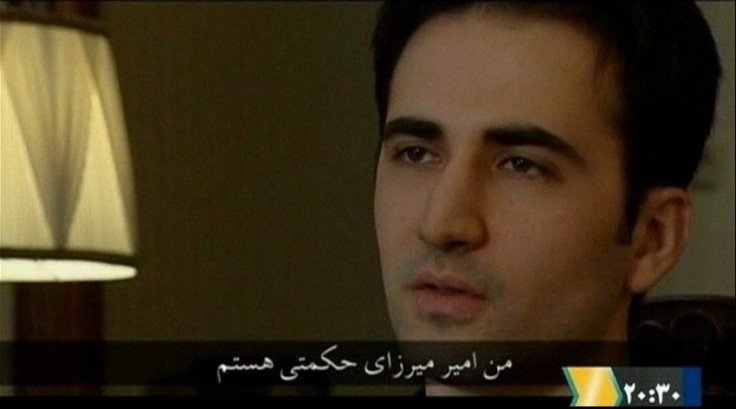Iranian Court Sentences U.S. Citizen to Death for Spying

A revolutionary court in Iran has sentenced an American citizen to death on charges of “spying” for the U.S. Central Intelligence Agency (CIA).
According to Iranian state TV, Amir Mirzai Hekmati, an American of Iranian descent, “confessed” to espionage before the court in Teheran.
Hekmati, 28, was sentenced to death for co-operating with a hostile nation, membership [in] the CIA and trying to implicate Iran in terrorism, said a statement from Iran’s semi-official Fars news agency.
Iranian officials said that Hekmati, who formerly served in the U.S. marines, had undergone training at American military bases in Iraq and Afghanistan prior to being sent to Iran to gather intelligence.
In a televised statement, according to Fars, Hekmati said: I was deceived by the CIA... Although I was appointed to break into Iran's intelligence systems and act as a new source for the CIA, I had no intention of undermining the country.”
The condemned man’s family in Arizona counter that he was only in Iran to visit his grandparents. Hekmati was born in the U.S. and joined the military in 2001 to work as an Arabic translator.
The U.S. State Department has already declared that Hekmati was falsely accused and demanded the Iranian court to free him.
Swiss diplomats, who represent U.S. interests in Iran, were reportedly not permitted to see Hekmati prior to the trial.
James Reynolds, BBC’s correspondent in Iran, wrote: “Iran's judicial and political systems place huge emphasis on the importance of confessions. So, for many in Iran's establishment, Amir Hekmati's guilt was proven beyond doubt during a televised confession broadcast on Iranian state TV in December.”
Hekmati will now be able to file an appeal with Iran’s Supreme Court within 20 days.
Reynolds commented: “It's difficult to predict how the case against him will now proceed. Mr. Hekmati has a high profile and holds an American passport. A decision to go ahead with his execution may have an impact on tensions between Iran and the West - which have got worse in recent weeks.”
Meanwhile, relations between Iran and the U.S. and Europe remain extremely tense amidst the application of more economic sanctions against Teheran in retaliation for Iran’s alleged nuclear weapons program. Iran has also threatened to close off the Strait of Hormuz, the key waterway through which a significant portion of global seaborne crude oil shipments pass through.
However, Iran's Supreme Leader Ayatollah Ali Khamenei said on a speech broadcast on television on Monday that additional sanctions will not have any impact on our nation.
He added: The Islamic establishment... knows firmly what it is doing and has chosen its path and will stay the course.”
© Copyright IBTimes 2024. All rights reserved.











